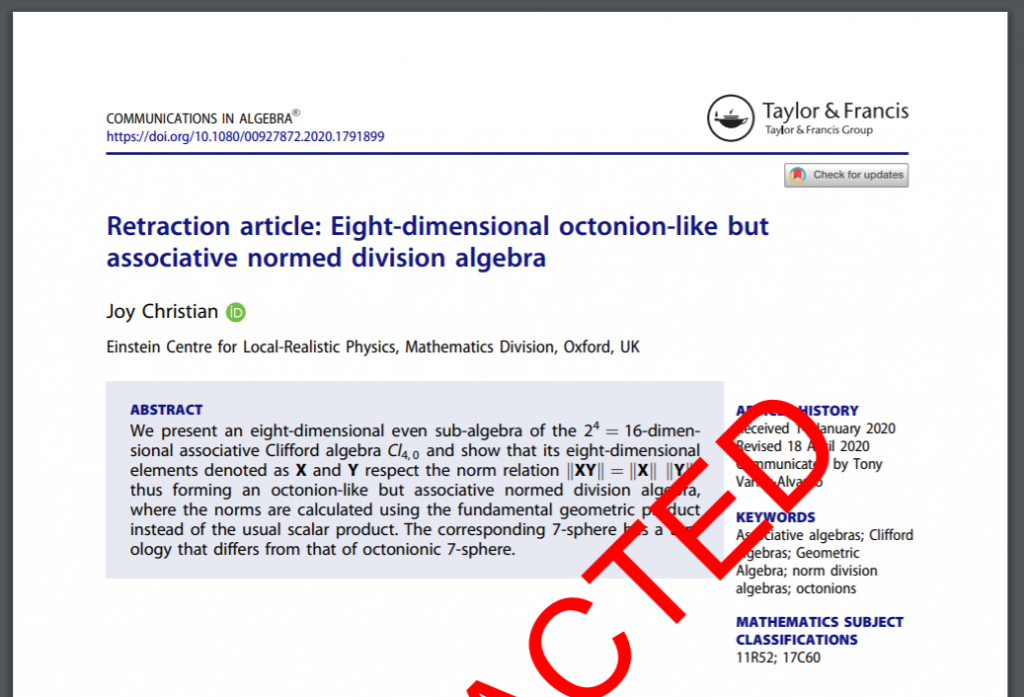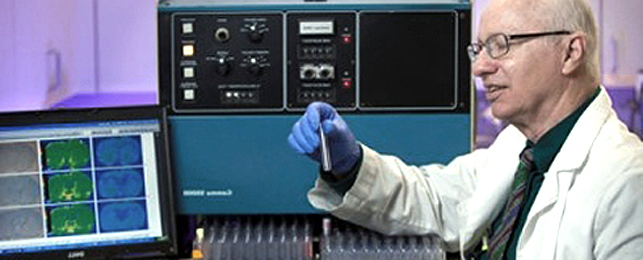
A physicist who in 2016 threatened to sue Elsevier after the publisher retracted one of his papers has lost another article over concerns about the “integrity of the mathematics” in the paper.
The article, “Eight-dimensional octonion-like but associative normed division algebra,” by Joy Christian, of the Einstein Centre for Local-Realistic Physics in Oxford, UK, appeared in Communications in Algebra in July 2020. According to the notice:
Continue reading Algebra paper retracted because of questions about the “integrity of the mathematics”







